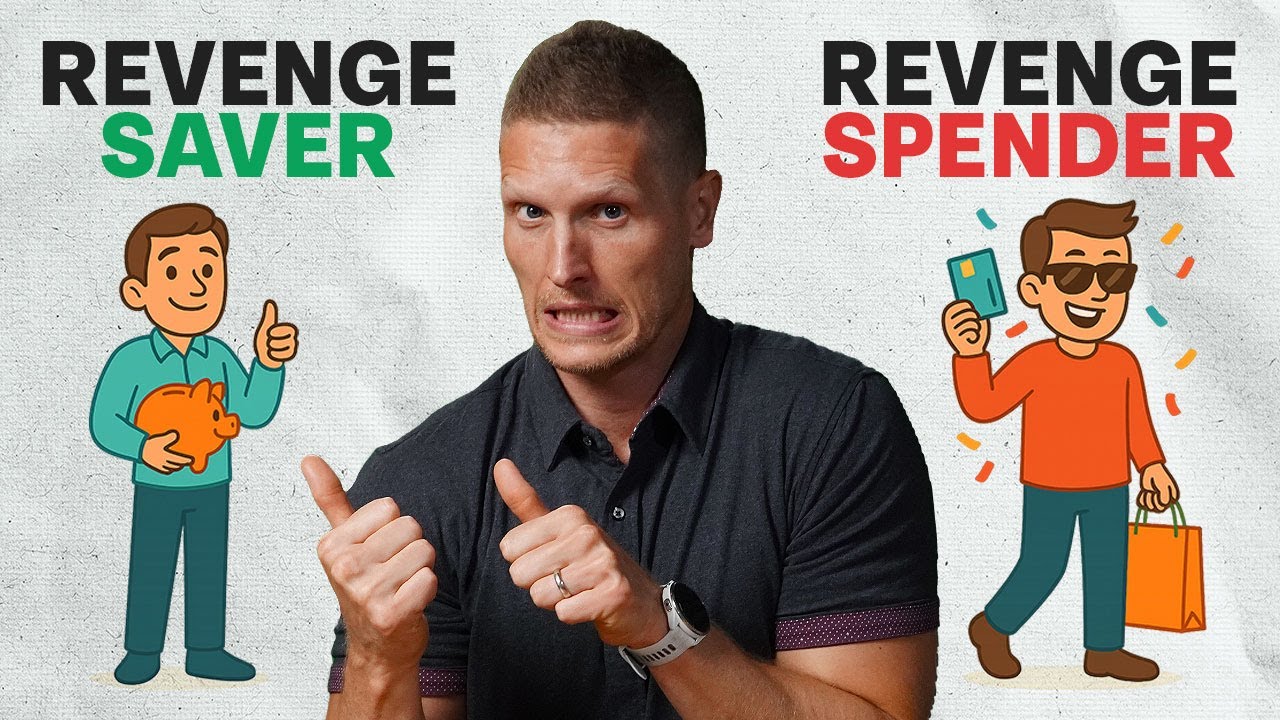Question from Pilai: Why is the recommendation to keep your emergency fund in a high-yield savings account instead of a diversified low-cost ETF? I could earn an average of 10% instead of 2 to 4%, typically, that a savings account would get. Wait, did you say you can get 10% on that thing? That's what he said. Oh man, what a pretty compelling argument, huh? I'll let you do that. I'll do the emotional stuff.
This is P. I'm a financial mutant, but I'm a reformed access-to-cash financial mutant. Because that's what we're talking about here. We're not talking about cash; we're talking about access to cash. That's what Pilai really wants to know. Because if you have a diversified portfolio, I had this discussion with neighbors too. They're like, "Man, you know what? I could go, even though 5% sounds good, if I go diversify this, I can make 8 to 10%. That's what I'm going to do." But y'all know what I'm going to tell you? These horrible doomsday people, you know, the bad things of economic volatility, whether it's the housing market getting crushed, unemployment, stock market volatility. These cretins of doom all wander around, spray-painting your neighborhood and wreaking havoc, but they hang out together. They're all extroverts. You know they are the most social, horrible gang of people. They're probably good to hang out with, but as long as it's not your property they're graffiti-ing and tearing up in the background.
But Pilai, I'm telling you, access to cash is a trap. I know it sounds good because I had a home equity line of credit. That was the path I went. I went home equity line, that was supposedly worth six figures, had a checkbook, had a debit card. It was all a big pile of, I was going to say poop, I'll just say poop. It was not worth the paper it was printed on because of those horrible dooms that travel around together. Yeah, what is your emergency fund for? It's for an emergency, right? When an emergency happens, you want to make sure that you can get to those dollars. So I'm going to argue that in that low-cost ETF that can make you 10%, what did it do in 2022? What did it do in the middle of COVID? What did it do in the fourth quarter of 2018? What did it do in 2008? What did it do in the first quarter of 2020? Go look at that, because you know what else happened in those times? There were layoffs, businesses shut down, the economy shrunk, things went into a recession. It got bad. It's the analogy you gave. It's that right when you need those dollars, you want them to be there.
And so people get like, "Oh, I can't believe we're not happy now about cash paying 2 to 4%. My one's making 5% right now." Do you realize how long we've been waiting to get cash not making just 0%? And I want you to think about this construct. When you look at your total financial picture, I've got an emergency fund, and it's this big. No, it's a decent size, it's this big. But when I compare that to the rest of my portfolio, the other dollars that are working for me, I want those dollars to be in the low-cost ETFs earning the 8% or 10% or whatever. So if that small piece of my total household net worth in the emergency fund is only earning 5%, I would be okay with that. I'm going to get it funded. I'm going to put it there, and then I'm going to keep building the rest of my portfolio across the exact things that you're talking about.
But I don't think you can be so aggressive and so risky and so dangerous that you put your emergency fund into something like that. Because at the time that you need it most, there's a very high likelihood it won't be there for you when you need it. So, Pilai thinks he's doing financial mutant stuff, but that's actually a financial mutant trap. You know, over there, spreading the pine straw on it right now, that access to cash.
But I do want to give Pilai the rest of the story on that. There is a financial mutant bonus territory thing he ought to consider. Okay, is we talk about the
financial order of operations, abundance goals, and prepaid future expenses on step eight. This is one of those things where I love when you get to step eight of the
financial order of operations is that you can actually run fat on cash. Because when everybody else, when all these things are smoking cigarettes on the street corner, hanging out together, you know, the unemployment, the real estate market, and everything all hanging out, you're going to realize how many Americans fell into this access to cash trap that you're thinking is a really cool opportunity.
But you're going to figure out the real financial mutants are the ones that are running a little thick on cash because that's when the deals are made. That's how we own this building. That's how I think about some of my best purchases that I made in 2008. They all happened when everybody else is scared to death. And why do you think old Warren Buffett, why do you think whenever the market's getting beaten up, everybody starts looking at the airport traffic around Omaha, Nebraska? It's because whenever people get in trouble, businesses, individuals, they go, "Who has cash?" How did JP Morgan bail out the entire country? And how does Warren Buffett do the exact same thing? These people can be your own baby Buffetts and build up a little. As long as you get to step eight, remember, you've got to do the get wealthy foundational activities first. But I'm telling you, bonus territory financial mutant is actually having cash when no one else has cash. It becomes a superpower. Don't overlook that. Love it. For more information, check out our
free resources.













